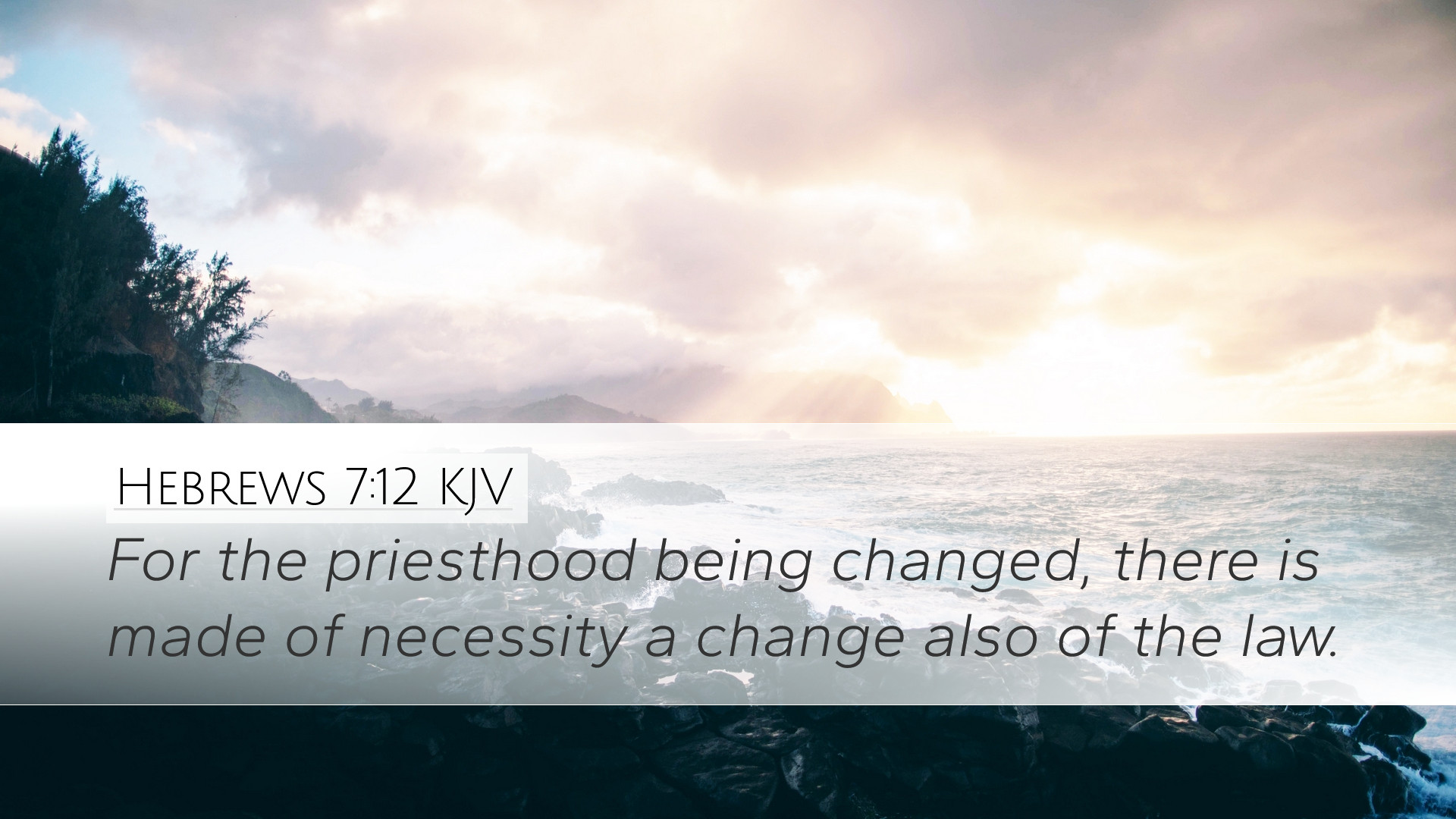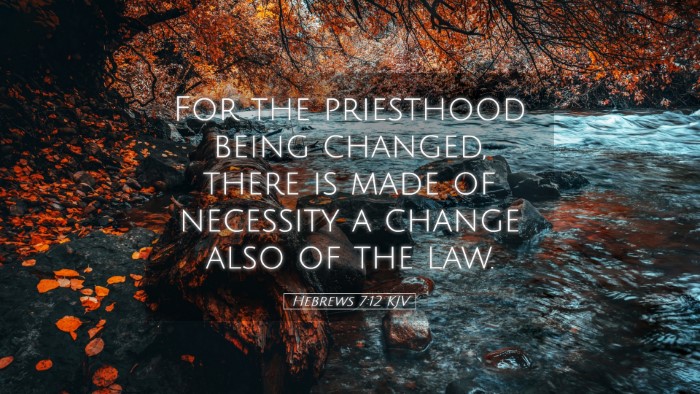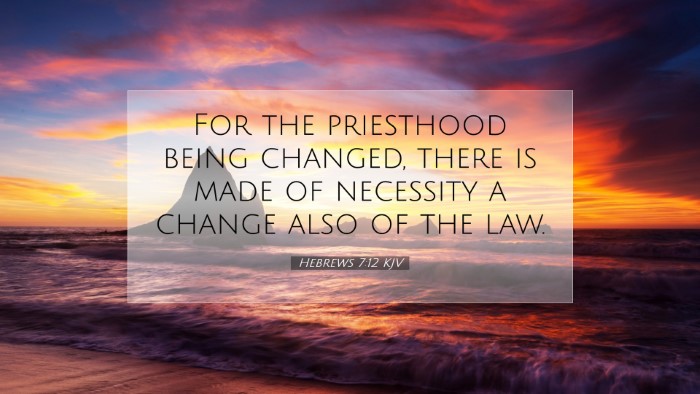Commentary on Hebrews 7:12
Verse: "For the priesthood being changed, there is made of necessity a change also of the law."
Introduction
The verse in question, Hebrews 7:12, presents a pivotal moment in the epistolary arguments of the author of Hebrews regarding the nature of the priesthood and its implications for the Mosaic Law. This commentary aims to draw upon insights from public domain commentaries to facilitate a deeper understanding of this profound theological shift from the Levitical priesthood to that of Christ.
Contextual Background
The Epistle to the Hebrews is often credited to an anonymous author who writes to an audience of Jewish Christians facing the temptation to revert to Judaism due to persecution and hardship. The focal point of Hebrews is the supremacy of Christ, particularly in His role as high priest. This passage reveals the necessary changes that accompany a new priesthood.
Analysis of the Verse
Hebrews 7:12 establishes a crucial principle: the change of the priesthood entails a corresponding change in the law. Various commentators offer insights into this theological assertion:
- Matthew Henry: Highlights the transitional nature between the old covenant, governed by the Levitical priesthood, and the new covenant, enacted through Christ's eternal priesthood. Henry emphasizes that the new order supersedes the old because it is rooted in a better hope (Hebrews 7:19).
- Albert Barnes: Focuses on the necessity of this change, arguing that as the priesthood shifts to Christ, it signifies a profound modification in the ancient laws, specifically those that pertained to the Levitical system. Barnes asserts that this reflects God's divine intention to provide believers with direct access to Him through the mediatorship of Christ.
- Adam Clarke: Provides a detailed examination of the implications of this "change." Clarke interprets this shift not merely as a modification but as the establishment of an entirely new covenant. He posits that with Christ as the eternal high priest, the preceding priestly system was rendered obsolete, highlighting the New Testament's fulfillment of the Old Testament's prophetic shadows.
The Significance of the Change
The change of the priesthood has crucial implications for the law and the believer's relationship with God.
- Access to God: As noted, the priesthood of Christ grants believers direct access to God. This is a central theme elucidated in the book of Hebrews, which emphasizes the boldness with which believers can now approach the throne of grace (Hebrews 4:16).
- Transformation of Worship: The shift from a physical temple and sacrifices to spiritual worship in Christ radically alters how believers engage with God. No longer bound to the rituals and regulations of the old covenant, worship becomes a matter of the heart and spirit (John 4:24).
- New Covenant Theology: The author of Hebrews indicates that Jesus establishes a new covenant, which fulfills and transcends the old. This covenant is marked by internal transformation (Hebrews 8:10) and a promise of complete forgiveness (Hebrews 8:12), removing the legalistic burden of the previous system.
Interpretative Challenges
While the message is clear, there are challenges in interpretation that deserve consideration:
- The identity of the audience: Understanding whether the original audience was predominantly Jewish Christians or mixed Gentiles has implications for interpretation. It may influence their perspective on the significance of the Levitical law and the priesthood.
- The application of the law today: In light of this change, how should contemporary believers interpret and apply the moral and ethical teachings of the Mosaic law? This merits careful theological reflection and pastoral guidance.
Theological Implications
Hebrews 7:12 invites deep theological reflection on several important areas:
- The Nature of Christ: This verse underscores Christ's unique role as both priest and king, aligning with the prophecy of Psalm 110:4, where He is designated a priest forever in the order of Melchizedek.
- Grace vs. Law: The change from law to grace highlights the work of Christ, who fulfills the requirements of the law on behalf of sinners, pointing to the profound grace available to believers.
- The Unity of Scripture: Understanding this passage enriches the tapestry of God's redemptive story throughout Scripture, connecting the dots between the Old and New Testament and illustrating God's consistent plan for salvation.
Conclusion
In summary, Hebrews 7:12 presents a foundational truth concerning the transition from the Levitical priesthood to the eternal priesthood of Christ. This profound change carries with it a transformation of the law and the nature of worship. Through an understanding of this pivotal verse, pastors, students, theologians, and Bible scholars can explore the implications of Christ's high priestly ministry and its relevance in the life of the believer today. Each commentary enhances our comprehension of this sacred text, urging us to embrace the realities of our new covenant relationship with God.


